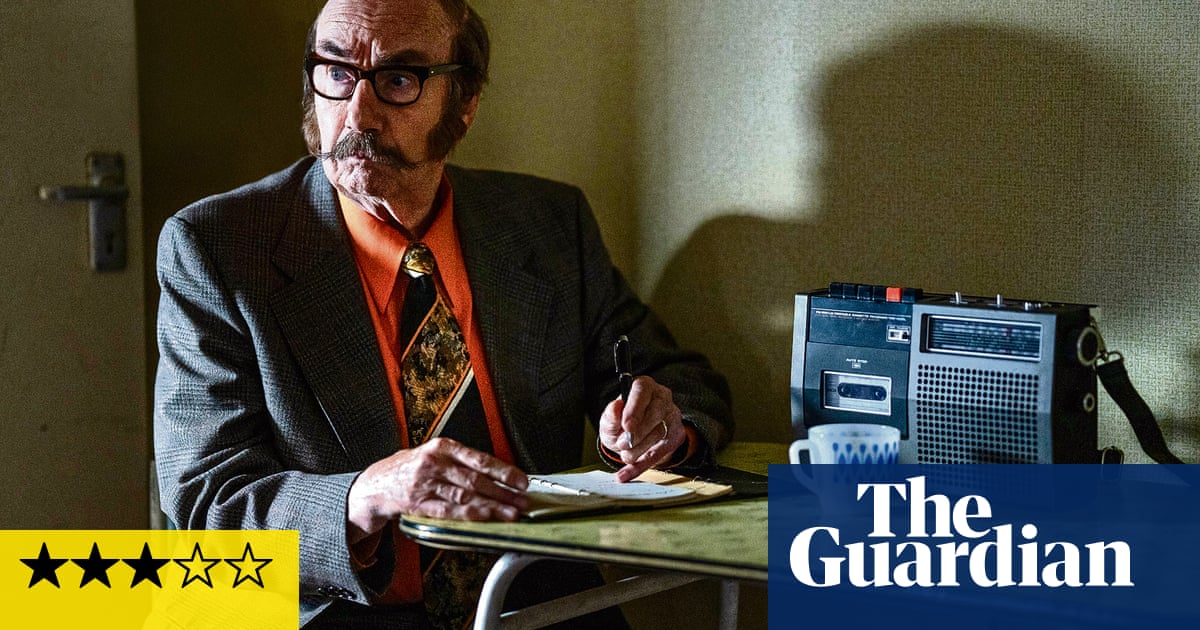
He was detained in Guantánamo Bay for 14 years without charge or trial, and wrote a bestselling memoir about his captivity and torture, which included sleep deprivation and beatings. Now Mohamedou Ould Slahi’s story will be told in a forthcoming feature film whose reconstruction of the US detention centre is so realistic that he became visibly distressed when he saw it.
Kevin Macdonald, the award-winning director of the film, titled The Mauritanian, said: “He came to the Guantánamo set. He was quite upset by it, so we didn’t let him stay very long.
“When he is pushed to remember, either by talking or being in that environment, a physical change comes over him. I’m not a psychologist but I can see he’s got PTSD, and it’s a very physical thing. He starts to do strange things with his face. You can just see that he’s not comfortable. He was fidgety, and didn’t want to be there. Who can blame him?”
He added: “He’s incredibly warm, funny and clever, but when he talks about the dark things that happened in Guantánamo, the mistreatment, the psychological and physical torture, he changes. He goes back there, he starts certain ticks and things in his face and in his mannerisms, you can see that he really is going straight back there and then he can find it quite hard to come out again.”
Macdonald’s acclaimed films include Touching the Void, the epic mountaineering adventure, The Last King of Scotland, inspired by Ugandan tyrant Idi Amin, and State of Play, the political thriller. In The Mauritanian – to be released in February – Tahar Rahim, the French-Algerian star of the prison thriller A Prophet, portrays Slahi. Jodie Foster plays his lawyer, Nancy Hollander, and Benedict Cumberbatch is military prosecutor Lt Colonel Stuart Couch.
Slahi, born in Mauritania in 1970, was held at Guantánamo between 2002 and 2016. He had sworn allegiance to al-Qaida during the 1980s Afghanistan insurrection, although he claimed that he later renounced them and denied involvement with terrorism. An administrative review eventually determined that he did not pose a “continuing significant threat to the security of the United States”.
While in detention, he wrote his Guantánamo Diary, describing the physical and psychological torture: “I started to hallucinate and hear voices as clear as crystal… Later on, the guards used these hallucinations and started talking with funny voices through the plumbing, encouraging me to hurt the guard and plot an escape. But I wasn’t misled by them.” He claimed to have been driven to making false confessions to end the torment, telling his interrogators that he planned to blow up the CN Tower in Toronto. Asked if he was telling the truth, he replied: “I don’t care as long as you are pleased.”
Macdonald’s research included interviewing Hollander: “I said to her, ‘Are you 100% sure he’s innocent?’ because a lot of the film is about her deciding whether he’s innocent or not. She said: ‘After the millions of dollars the American government spent researching every aspect of his life, torturing him and lie-detector testing him, don’t you think some evidence would have come up?’ She won’t say definitively that he never did anything wrong.
“He joined al-Qaida when he was 18 or 19. He felt that he had to stop the Soviets in this instance killing fellow Muslims. He didn’t know which group it was. Turned out that they were al-Qaida. He never fought because the war with the Soviets was over. Did he sometimes have ideas that he shared with jihadists? Maybe. But just because you believe something momentarily doesn’t mean you’re a criminal.”
Macdonald sought to portray Slahi’s torture “mostly through suggestion. He’s beaten up, he’s force-fed, but it’s done in a way that is, I hope, palatable for an audience. We made the decision to try to make it about the psychological effect rather than seeing things physically…
“The one area which is, as far as we were able to make it, absolutely accurate is his treatment from when he arrived to the end – and what the cell looked like, how cold the air-conditioning was, where the toilet was in relation to where he could pray, and the way his shackles were done up.”
He added: “It’s not a political film. It’s a humanistic film.”
Despite everything, Slahi has kept his sense of humour and even keeps in touch with one of his guards, Macdonald said: “They’re great friends. They speak each week on Zoom.”
Foster said: “I was drawn in by the emotional story first, Mohamedou’s awful journey. It’s hard to imagine how a human could endure that, being taken from his home, blindfolded, imprisoned, subjected to years and years of psychological and physical abuse without any explanation whatsoever.”












